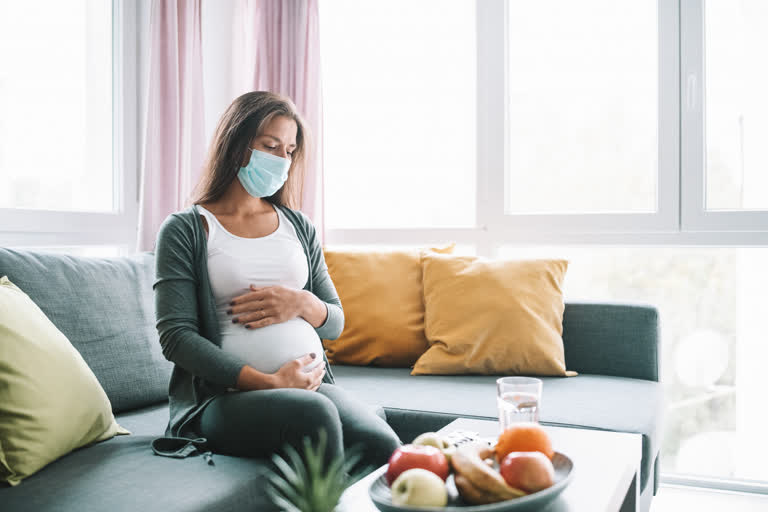New Delhi: Amidst concern over the impact of Covid19 infection amongst pregnant women, the Indian Council of Medical Research (ICMR) has launched a study to determine the pregnancy and fetal outcomes in women with SARS-CoV-2 infection. It will also study the effects of treatment on pregnancy outcomes.
Named as PregCovid (National Registry of Pregnant Women with Covid-19 in India), it is a study of pregnant women & women in the post-partum period with SARS-CoV-2 infection. This study is a joint collaboration between ICMR and Maharashtra government.
The protocol has also been registered with the Clinical Trial Registry of India. Dr Rahul Gajbhiye, senior scientist at the National Institution for Research in Reproductive Health (NIRRH) is the principal investigator of this research which seeks to enrol 2,000 women.
“In general, pregnant women are a vulnerable population and need special attention. Pregnant women are particularly susceptible to respiratory pathogens and severe pneumonia, due to various factors. Further, Indian women are susceptible to infections and pregnancy by itself is a risk factor for acquiring respiratory infections and SARS-CoV-2 infection being no exception,” said a senior official at the ICMR.
Also read: Exposure To Common Cold Can Help Combat COVID-19: Study
Currently, there is limited understanding of the COVID-19 in pregnant women and its impact on pregnancy and neonatal outcomes.
“The initiative was undertaken to study socio-demographic, clinical presentations and the reproductive characteristics of pregnant and post-partum women diagnosed with SARS- CoV-2 infection. It will also evaluate the proportion of maternal to fetal transmission of SARS-CoV-2 infection in pregnancy,” the official said.
It may be mentioned here that Dr Gajbhiye’s recent limited study, which is part of the PregCovid Registry, has demonstrated a higher risk of adverse outcomes such as neonatal sepsis and death in the SARS-CoV-2 infected as compared to the non-infected neonates.
His study also showed the risk of SARS-CoV-2 infection in 6.3 percent of neonates born to mothers with Covid-19.
“Although there is evidence on the adverse impact of SARS-CoV2 on the health of mothers and neonates, the evidence is mainly from high-income countries. To reduce the mortality and morbidity due to Covid-19 in low-income and middle-income countries (LMICs), there is a need to generate evidence from the LMICs,” Dr Gajbhiye said.
The study was a retrospective analysis of 524 neonates born to mothers with Covid-19 admitted from April to July 2020.
Also read: 'Covid-19 could increase diabetes burden in India'
“SARS-CoV-2 infection was detected in 6.3 percent of the newborns of the mothers with Covid-19. No significant differences were observed between maturity at gestation, birth weight and sex of SARS-CoV-2 infected and non-infected newborns. The risk of sepsis was 4.09 fold higher in the neonates with SARS-CoV-2 as compared to the non-infected group. Poor feeding was significantly more common among SARS-CoV-2 infected neonates as compared to the non-infected neonates. There were a total of 13 neonatal deaths, of which 3 deaths occurred in SARS-CoV-2 infected neonates while 10 in the SAR-CoV-2 negative group. The risk of neonatal death was higher in SARS-CoV-2 infected newborns,” it said.
The neonatal SARS-CoV-2 infection is observed in almost 6 percent of neonates born to mothers with perinatal Covid-19. There is a higher risk of adverse outcomes such as neonatal sepsis and death in the SARS-CoV-2 infected as compared to the non-infected neonates.



